La investidura de Puigdemont y las tensiones del independentismo
Martí Caussa
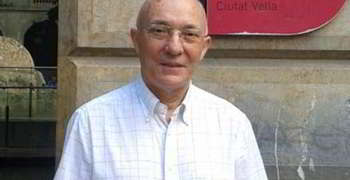 El martes día 30 por la mañana Roger Torrent, presidente del Parlament y miembro de ERC, aplazó el pleno que debía investir Puigdemont sin advertir antes a JuntsxCatalunya y la CUP, que mostraron abiertamente su desacuerdo. Pero no se suspendieron las manifestaciones y concentraciones que habían organizado la ANC (pero no Omnium) y los CDR, en las que uno de los gritos más populares fue "Carles Puigdemont, el nostre president". La ANC disolvió su concentración después del parlamento de su vicepresidente, pero los CDR la continuaron y más tarde un numeroso grupo de personas logró entrar en el parque de la Ciutadella e ir hasta la entrada del Parlament donde se mantuvieron hasta la madrugada. Por la noche Puigdemont difundió un vídeo en el que insistía en que "no hay ningún otro candidato posible". Las tensiones dentro del independentismo son hoy, miércoles día 31, el gran tema de los medios de comunicación y las redes sociales.
El martes día 30 por la mañana Roger Torrent, presidente del Parlament y miembro de ERC, aplazó el pleno que debía investir Puigdemont sin advertir antes a JuntsxCatalunya y la CUP, que mostraron abiertamente su desacuerdo. Pero no se suspendieron las manifestaciones y concentraciones que habían organizado la ANC (pero no Omnium) y los CDR, en las que uno de los gritos más populares fue "Carles Puigdemont, el nostre president". La ANC disolvió su concentración después del parlamento de su vicepresidente, pero los CDR la continuaron y más tarde un numeroso grupo de personas logró entrar en el parque de la Ciutadella e ir hasta la entrada del Parlament donde se mantuvieron hasta la madrugada. Por la noche Puigdemont difundió un vídeo en el que insistía en que "no hay ningún otro candidato posible". Las tensiones dentro del independentismo son hoy, miércoles día 31, el gran tema de los medios de comunicación y las redes sociales.


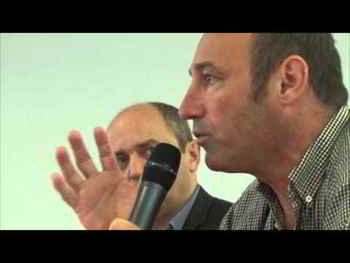 Quoi qu’on pense de l’indépendance de la Catalogne, le processus catalan est quelque chose de passionnant à étudier pour les militants progressistes, démocrates et en rupture avec ce système capitaliste qui nous fait foncer vers le précipice.
Quoi qu’on pense de l’indépendance de la Catalogne, le processus catalan est quelque chose de passionnant à étudier pour les militants progressistes, démocrates et en rupture avec ce système capitaliste qui nous fait foncer vers le précipice. L’activité financière basée sur le recouvrement de
L’activité financière basée sur le recouvrement de  ATHENS, GREECE – For years, throughout the severe economic crisis that has plagued Greece over much of the past decade, the international media and financial press have held Greece up as a striking example of financial folly and mismanagement. Greece’s debt, we have been told, is the product of fiscal irresponsibility, of “lazy” and “unproductive” Greeks living beyond their means and spending recklessly. Moreover, Greece has been chastised for not emerging out of its economic doldrums despite being the recipient of hundreds of billions of euros worth of “free bailout money.” In short, Greece has been presented as an example for other countries to avoid at all costs.
ATHENS, GREECE – For years, throughout the severe economic crisis that has plagued Greece over much of the past decade, the international media and financial press have held Greece up as a striking example of financial folly and mismanagement. Greece’s debt, we have been told, is the product of fiscal irresponsibility, of “lazy” and “unproductive” Greeks living beyond their means and spending recklessly. Moreover, Greece has been chastised for not emerging out of its economic doldrums despite being the recipient of hundreds of billions of euros worth of “free bailout money.” In short, Greece has been presented as an example for other countries to avoid at all costs.
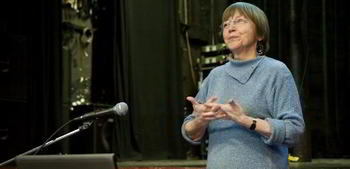 Soviet planning suffered from a slowing up of growth, the damage of bureaucratism both on the quality of the products and their cost, internal pressures (popular and coming from the apparatus) in favour of the consumption of Western products, and of the need to improve the possibilities of exports to countries with strong currencies to buy their products. It was under these pressures that the debate on reforming planning took place: it was initiated in the first half of the 1960s from inside an apparatus which, in the USSR, had put an end to the ‘chaos’ of Khrushchev’s thaw and had assumed Soviet intervention against the Hungarian workers’ councils. That is to say, that in a dominant fashion, the reformist economists discussing ‘economic laws’ and productivity, avoided any issues of democratisation and workers’ self-management – except in Yugoslavia and inside the Czech CP, the self-management wing linked to Jaroslav Sabata.
Soviet planning suffered from a slowing up of growth, the damage of bureaucratism both on the quality of the products and their cost, internal pressures (popular and coming from the apparatus) in favour of the consumption of Western products, and of the need to improve the possibilities of exports to countries with strong currencies to buy their products. It was under these pressures that the debate on reforming planning took place: it was initiated in the first half of the 1960s from inside an apparatus which, in the USSR, had put an end to the ‘chaos’ of Khrushchev’s thaw and had assumed Soviet intervention against the Hungarian workers’ councils. That is to say, that in a dominant fashion, the reformist economists discussing ‘economic laws’ and productivity, avoided any issues of democratisation and workers’ self-management – except in Yugoslavia and inside the Czech CP, the self-management wing linked to Jaroslav Sabata.  But when it comes to the nature of the thousand concrete, practical measures, large and small, necessary to introduce socialist principles into economy, law and all social relationships, there is no key in any socialist party program or textbook… Only experience is capable of correcting and opening new ways. Only unobstructed, effervescing life falls into a thousand new forms and improvisations, brings to light creative new force, itself corrects all mistaken attempts.
But when it comes to the nature of the thousand concrete, practical measures, large and small, necessary to introduce socialist principles into economy, law and all social relationships, there is no key in any socialist party program or textbook… Only experience is capable of correcting and opening new ways. Only unobstructed, effervescing life falls into a thousand new forms and improvisations, brings to light creative new force, itself corrects all mistaken attempts.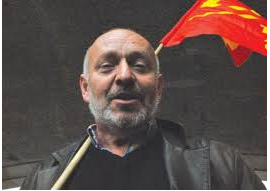 16 janvier 1919. La guerre civile bat son plein. Les troupes blanches de l’amiral Koltchak ont franchi l’Oural et progressent vers Moscou. La portion du territoire contrôlée par les rouges se réduit comme peau de chagrin. Les soviets sont en danger de mort. Dans son bureau du Kremlin, Lénine prend pourtant le temps de débattre… de protection de la nature.
16 janvier 1919. La guerre civile bat son plein. Les troupes blanches de l’amiral Koltchak ont franchi l’Oural et progressent vers Moscou. La portion du territoire contrôlée par les rouges se réduit comme peau de chagrin. Les soviets sont en danger de mort. Dans son bureau du Kremlin, Lénine prend pourtant le temps de débattre… de protection de la nature.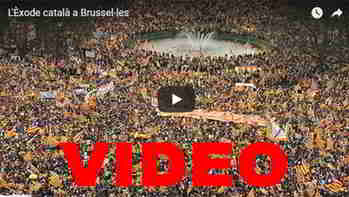 Més de 45.000 catalans han ocupat aquest dijous la capital administrativa d’Europa, Brussel·les.
Més de 45.000 catalans han ocupat aquest dijous la capital administrativa d’Europa, Brussel·les.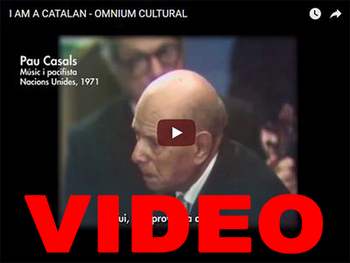 Freedom, democracy and respect for human rights.
Freedom, democracy and respect for human rights. 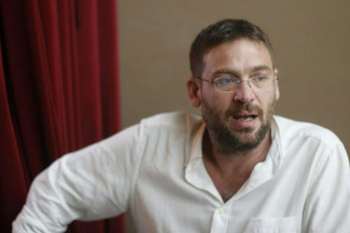 Albano Dante Fachin (Bahía Blanca, Argentina, 1976) atiende a CTXT después de su dimisión como secretario general de Podem y el arrollador triunfo del Sí en la consulta convocada por la dirección estatal de Podemos sobre la integración de Podem en la candidatura de Catalunya en Comú para las elecciones autonómicas del 21 de diciembre. Justo después de la entrevista, Fachin viajó a Madrid para acompañar a la presidenta del Parlament, Carme Forcadell, citada a declarar ante el Tribunal Supremo, acusada de delitos de rebelión, sedición y malversación.
Albano Dante Fachin (Bahía Blanca, Argentina, 1976) atiende a CTXT después de su dimisión como secretario general de Podem y el arrollador triunfo del Sí en la consulta convocada por la dirección estatal de Podemos sobre la integración de Podem en la candidatura de Catalunya en Comú para las elecciones autonómicas del 21 de diciembre. Justo después de la entrevista, Fachin viajó a Madrid para acompañar a la presidenta del Parlament, Carme Forcadell, citada a declarar ante el Tribunal Supremo, acusada de delitos de rebelión, sedición y malversación.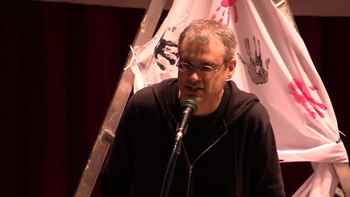 1. Golpe de Estado impulsado por el propio Estado. Ésta es la manera más sencilla de definir la batería de medidas que el gobierno de Mariano Rajoy, con el apoyo de PSOE y Ciudadanos, hizo públicas este pasado viernes y que someterá a aprobación del senado el próximo día 27. Más que la aplicación del incierto artículo 155 lo que Rajoy anunció es la suspensión de facto del autogobierno catalán en su conjunto utilizando el artículo 155 como pretexto legal. La ausencia de precedentes en su implementación, junto al clima de excepcionalidad institucional del momento, permite así al gobierno español tomar decisiones, no sólo autoritarias y anti-democráticas, sino de dudosa constitucionalidad. El poder violenta sus propias normas al amparo de la fuerza y de la creación de una situación excepcional. Activa las válvulas de seguridad de las que dispone para enrocarse en momentos difíciles y cambiar las reglas del juego desde la legitimidad de las antiguas y con la promesa de defenderlas. Bajo un clima de excepción se toman así medidas que en sí mismas suponen la subversión del orden anterior, pero en su propio nombre y legitimidad, con el fin de maniobrar para alterar la dinámica política y social catalana y volver a una nueva normalidad de contornos más favorables al Estado. Ataque frontal a la democracia, en nombre de la democracia y para desembocar en una nueva normalidad democrática donde todo transcurra por cauces aceptables tras haber puesto orden durante un periodo de excepción. Todo ello es, lejos de una anomalía extraña, un ejemplo claro de la naturaleza de la Ley y del Estado capitalista en general (y del régimen político español de 1978 en particular) que desmonta de un plumazo todas las visiones fetichistas y bobaliconas de la ley, la legalidad y las instituciones a las que tanto nos hemos acostumbrado en tiempos de normalidad rutinaria. Sin duda, desde hace semanas asistimos a un cursillo acelerado y práctico de teoría del Estado, que fuerza a una maduración estratégica acelerada de un movimiento cuyo sentido común evitó toda visión de choque con el Estado en favor de una placentera desconexión 1/.
1. Golpe de Estado impulsado por el propio Estado. Ésta es la manera más sencilla de definir la batería de medidas que el gobierno de Mariano Rajoy, con el apoyo de PSOE y Ciudadanos, hizo públicas este pasado viernes y que someterá a aprobación del senado el próximo día 27. Más que la aplicación del incierto artículo 155 lo que Rajoy anunció es la suspensión de facto del autogobierno catalán en su conjunto utilizando el artículo 155 como pretexto legal. La ausencia de precedentes en su implementación, junto al clima de excepcionalidad institucional del momento, permite así al gobierno español tomar decisiones, no sólo autoritarias y anti-democráticas, sino de dudosa constitucionalidad. El poder violenta sus propias normas al amparo de la fuerza y de la creación de una situación excepcional. Activa las válvulas de seguridad de las que dispone para enrocarse en momentos difíciles y cambiar las reglas del juego desde la legitimidad de las antiguas y con la promesa de defenderlas. Bajo un clima de excepción se toman así medidas que en sí mismas suponen la subversión del orden anterior, pero en su propio nombre y legitimidad, con el fin de maniobrar para alterar la dinámica política y social catalana y volver a una nueva normalidad de contornos más favorables al Estado. Ataque frontal a la democracia, en nombre de la democracia y para desembocar en una nueva normalidad democrática donde todo transcurra por cauces aceptables tras haber puesto orden durante un periodo de excepción. Todo ello es, lejos de una anomalía extraña, un ejemplo claro de la naturaleza de la Ley y del Estado capitalista en general (y del régimen político español de 1978 en particular) que desmonta de un plumazo todas las visiones fetichistas y bobaliconas de la ley, la legalidad y las instituciones a las que tanto nos hemos acostumbrado en tiempos de normalidad rutinaria. Sin duda, desde hace semanas asistimos a un cursillo acelerado y práctico de teoría del Estado, que fuerza a una maduración estratégica acelerada de un movimiento cuyo sentido común evitó toda visión de choque con el Estado en favor de una placentera desconexión 1/. Based on El Lissitsky, “Beat the whites with the red wedge”, 1919
Based on El Lissitsky, “Beat the whites with the red wedge”, 1919 “Porque esta gran humanidad ha dicho basta y ha echado a andar. Y su marcha, de gigantes, ya no se detendrá hasta conquistar la verdadera independencia, por la que ya han muerto más de una vez inútilmente.”
“Porque esta gran humanidad ha dicho basta y ha echado a andar. Y su marcha, de gigantes, ya no se detendrá hasta conquistar la verdadera independencia, por la que ya han muerto más de una vez inútilmente.” After the referendum held on 1 October in Catalonia and the victory of Yes in favour of the independence of Catalonia, despite the great legal, judicial and police difficulties imposed by the government of the Popular Party, there has been the strike (mainly followed in the administrations, transport and rural areas) and a national stoppage (with lockouts in small and medium-sized enterprises in protest against repression) by other layers of the population on 3 October. The first result is a victory of the popular movement and a defeat of the Rajoy government that could not prevent these two great expressions of the movement.
After the referendum held on 1 October in Catalonia and the victory of Yes in favour of the independence of Catalonia, despite the great legal, judicial and police difficulties imposed by the government of the Popular Party, there has been the strike (mainly followed in the administrations, transport and rural areas) and a national stoppage (with lockouts in small and medium-sized enterprises in protest against repression) by other layers of the population on 3 October. The first result is a victory of the popular movement and a defeat of the Rajoy government that could not prevent these two great expressions of the movement.